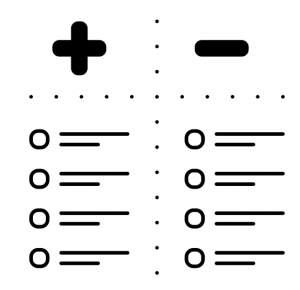Re-envisioning LITA Forum
In 2016, the Library and Information Technology Association charged a Forum Assessment & Alternatives Task Force with assessing the impact of LITA Forum; evaluating its position within the library technology conference landscape; and recommending next steps. The goal of this work is to ensure that the time and resources spent on Forum are highly beneficial to both the membership and the division.
Timeline
Over the course of 2016, the Forum Assessment Task Force explored the impact and perceptions of the LITA Forum among LITA members and library technologists in general. The Task Force combined existing data already gathered from surveys, as well as conducted its own survey, a matrix mapping exercise, and a series of focus groups, to understand how the LITA Forum is perceived, identify strengths and weaknesses, and make recommendations for the Forum’s continued success.
 Summary of Findings
Summary of Findings
Generally, more than 40% of LITA members identify as an administrator, with nearly 40% of membership working in an academic library and 17% in public libraries. Of participants who typically attend Forum, approximately 50% of attendees identify as a librarian, 16% as an administrator, and 9% as IT, with 68% working in 4 year academic libraries and 13% as public librarians.
Administrators are more likely to be LITA members but not attend Forum, with most attendees being early-career librarians, attracting more 4-year academic librarians than does LITA membership as a whole. Attendees come to Forum to keep up with technology trends, network, and learn new things. Cost is a major impediment for attendance, as is location, and these two factors are frequently intertwined. When individuals determine how to spend travel/professional development funds, LITA Forum is frequently not high on their individual conference lists, and content of conference is also very important in deciding to attend a conference. Keynotes are not important to conference attendees, and there is interest in having conference sessions recorded for future use as well as having a virtual, streaming option for those unable to travel. Networking and informal interaction are strengths of Forum, and there is a belief that administrators grow out of Forum, so they need to better define the audience.
Recommendations
The key characteristics of the Forum that should be preserved include keeping the Forum’s size relatively small, focusing on networking and allowing time for conversation and collaboration and maintaining emphasis on trends for the future, through which attendees can learn about new things coming, rather than exclusively about case studies of what other libraries have been doing.
- Define Forum’s identity and rename it to reflect identity
- Major features of Forum need to have guidelines to planning and extensive documentation
- Involve public librarians & reach out to them as central participants in the Forum
- Examine outsourcing conference logistics and support
- Conference length should be two full days, on a Friday and Saturday
- Develop an attendee mentor program
- Make some subcommittees permanently a part of the Forum planning committee
- LITA staff work to improve relationships with vendors
- Investigate having Forum rotate among a small number of cities
- Investigate and implement more virtual keynotes and/or presentations
- Develop conference topics early, have specific tracks
- Make changes to presentations to vary the formats, ensure good speakers/presentations, and have them include more interaction
- Have up to half of presentations be invited
- Reduce the number of keynotes
Committee Membership:
The Task Force met virtually from Midwinter 2016 and ran through Midwinter of 2017 and included ten members (listed below), including representation from liaisons to the following LITA committees:
- Membership
- Assessment
- Forum Planning 2016
- Jenny Taylor (Co-Chair), University of Illinois at Chicago
- Ken Varnum (Co-Chair), University of Michigan Library
- Laureen Cantwell, Colorado Mesa University
- Melody Condron, University of Houston Libraries
- Cinthya Ippoliti, Oklahoma State University
- Jenny Levine, LITA Executive Director
- Hong Ma, Loyola University of Chicago
- Christine Peterson, Amigos Library Services
- Ayla Stein, University of Illinois at Urbana-Champaign
- Whitni Watkins, Analog Devices
- Tiffany Williams, South Holland Public Library
- Mark A. Beatty, Staff Support
For the complete report, please go to: http://connect.ala.org/files/MW%20DOC%2017-16%20Forum%20Assessment%20Task%20Force%20Report.pdf
*Plus/minus photo courtesy of Mitchell Eva, Noun Project
